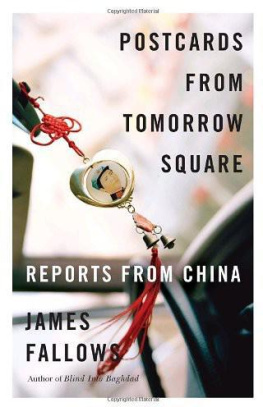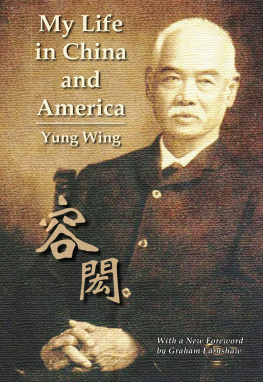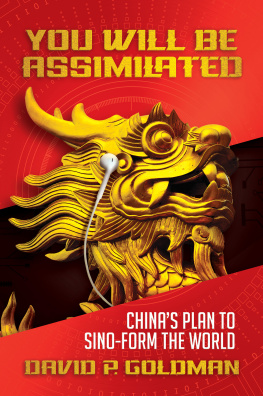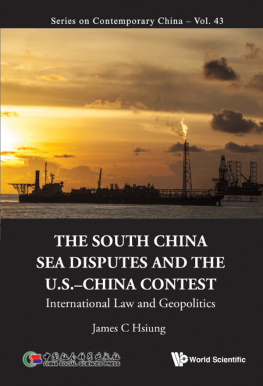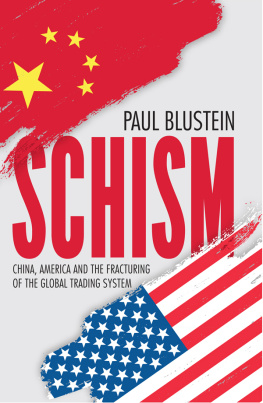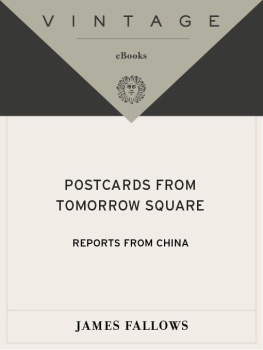James M Fallows - Postcards from Tomorrow Square : reports from China
Here you can read online James M Fallows - Postcards from Tomorrow Square : reports from China full text of the book (entire story) in english for free. Download pdf and epub, get meaning, cover and reviews about this ebook. City: New York, year: 2009, publisher: Vintage Books, genre: Politics. Description of the work, (preface) as well as reviews are available. Best literature library LitArk.com created for fans of good reading and offers a wide selection of genres:
Romance novel
Science fiction
Adventure
Detective
Science
History
Home and family
Prose
Art
Politics
Computer
Non-fiction
Religion
Business
Children
Humor
Choose a favorite category and find really read worthwhile books. Enjoy immersion in the world of imagination, feel the emotions of the characters or learn something new for yourself, make an fascinating discovery.
- Book:Postcards from Tomorrow Square : reports from China
- Author:
- Publisher:Vintage Books
- Genre:
- Year:2009
- City:New York
- Rating:3 / 5
- Favourites:Add to favourites
- Your mark:
- 60
- 1
- 2
- 3
- 4
- 5
Postcards from Tomorrow Square : reports from China: summary, description and annotation
We offer to read an annotation, description, summary or preface (depends on what the author of the book "Postcards from Tomorrow Square : reports from China" wrote himself). If you haven't found the necessary information about the book — write in the comments, we will try to find it.
Postcards from Tomorrow Square : reports from China — read online for free the complete book (whole text) full work
Below is the text of the book, divided by pages. System saving the place of the last page read, allows you to conveniently read the book "Postcards from Tomorrow Square : reports from China" online for free, without having to search again every time where you left off. Put a bookmark, and you can go to the page where you finished reading at any time.
Font size:
Interval:
Bookmark:

POSTCARDS FROM
TOMORROW SQUARE
CONTENTS
For Deb
INTRODUCTION
T he chapters in this book were written between the summers of 2006 and 2008, when my wife and I were living first in Shanghai and then Beijing and were traveling through many other parts of China.
This was not our first experience in the country. We had visited China in the mid-1980s, when we were living in Malaysia and Japan with our elementary-school-aged children. Getting into China was tricky at the time. We had finagled a visa by studying the invented language Esperanto, as a family, so we could be part of the U.S. delegation to the 1986 World Esperanto Congress in Beijing. (A friend was head of the U.S. Esperanto League.) There we spoke with Chinese intellectuals who had been assigned to learn Esperanto rather than English at the height of anti-Western sentiment under Chairman Mao.
The country then was still dark, poor, and monochromatic. Big city streets had few lighted signs or storefronts at night. Wardrobes were drab blue or gray. The idea of China becoming an economic and financial powerhouse seemed highly speculative.
In Shanghai we met a Chinese man in his late seventies who seemed eager to use his British-accented English, dormant for decades, in conversation with us. During Shanghais racy and European-controlled era in the 1930s, before the Imperial Japanese army arrived, he had been a clerk in the Shanghai office of a London-based brokerage house. He showed us a brittle stock certificate from that era, which he had hidden through all those years, and said that he hoped to live to see the Shanghai Stock Exchange reopen. Five years later, it did open. I never learned whether his hope was fulfilled.
After this first exposure, I visited China again on reporting trips in the late 1980s and 1990s. Then, after several years of planning, in 2006 my wife and I moved from our home in Washington, D.C., to Shanghai and other cities for three years or so. It has been just over two years now as I write this introduction. For me this meant writing a series of articles for The Atlantic Monthly , for which I had also been a correspondent during our previous time in Asia. My wife continued her work for a U.S.-based Internet research firm, studying the Internets evolution and effects in China.
Most of the material that follows appeared month by month in The Atlantic , starting late in 2006. It is presented here in its original sequence, as an unfolding report on Chinas changes during this periodas it solidified its role as a dominant manufacturing and financial influence on the world as a whole; as it coped with increasing domestic and foreign criticism about its environmental problems; and as its press, people, and government prepared for the Olympics and responded to a series of crises prior to their start. These included a freak snowstorm that paralyzed travel in the southern half of the country, just as tens of millions of people were joining their families for the Chinese New Year holidays; international protests and disruptions as the Olympic torch relay passed through; and of course the devastating Sichuan province earthquake on May 12, 2008, which killed perhaps 100,000 people and left many millions homeless.
Naturally, the sequence of articles also reveals the changes in my own attitudes and conclusions over these two years. And they illustrate the two different approaches I have taken in trying to explain what I have seen.
Some of the articles collected here deal with questions that I had in mind before coming to China. But many of the articles are about people, trends, and events that I had not known were interesting or significant until I came across them after we had arrived. This opportunity for discovery is the real payoff of life as a reporter: the chance to answer questions you did not previously know you wanted to ask.
For instance, until I happened to visit his hometown of Changsha, in Hunan province, I had never heard of Zhang Yue, the entrepreneur described in the second chapter of this book. On the home campus of his air-conditioning company in Changsha, Mr. Zhang has built a replica of the Palace of Versailles plus a 130-foot high golden-colored pyramid. He also operates one of Chinas first corporate air fleetsand meanwhile reveres Al Gore for his attempts to deal with climate change. I ended up thinking not just that he was intriguing in his own right but also that his story would give outside readers some sense of the wild variety of personalities, interests, and visions among the new business class in China.
Similarly, I had not known about the dominant role of reality shows on Chinas state-run TV networks until I had a chance to watch some of them. When I did, I became fascinated by the drama and the implications of a show called Win in China! that was modeled on Donald Trumps The Apprentice but was more earnestly pro-entrepreneurial in its approach. It is described in chapter three. The same process of unintended discovery led me to the story of how two Taiwanese-born business executives undertook the mission of reducing poverty in Chinas dry, remote western provinces, as portrayed in chapter ten, and of the Irish-born entrepreneur Liam Caseys emergence as Mr. China in the southern manufacturing center of Shenzhen, described in chapter four.
H ere is the main thing I hope readers will bear in mind in considering the variety of these chaptersshort or long, policy-oriented or devoted mainly to portraying interesting cultural developments: The most important fact about them is, indeed, the variety of the aspects of China they present.
I suspected before coming to China, and now know for sure, that no one can sensibly try to present the real story or the overall picture of this country. It is simply too big and too contradictory.
The point may seem obvious, but I emphasize it because I believe that many people who lack firsthand experience in China have not fully taken it to heart. A central problem in the way the outside world thinks and talks about China is that it assumes there is a single, comprehensible China to discuss.
Every country varies; the challenge of China is that its internal variations are truly enormous. Given Chinas scale, they are probably greater than those of any other country. They are certainly greater than what outside politicians and citizens usually assume in discussions about Chinas economic and strategic potential and their own future dealings with it. Yes, press and politicians in other countries routinely refer to the huge and widening gap between Chinas haves and have-nots. But that is only one of countless important cleavages within the countryby region, by generation, by level of schooling, by rural versus urban perspective, even by level of rainfall, which determines how many people a given area of land can support. The situation of entrepreneurs in Guangdong province, north of Hong Kong, has almost nothing in common with that of subsistence farmers in Sichuan or Hebei provinces. People who lived through the Cultural Revolution have a different sense of how perilous rapid change can be for China than do their children, who have known only the current boom. The millions of Chinese people who have returned after living abroad have a different sense of their countrys situation than the billion plus who have never left. And on through a very long list of other differences.
All of these are intensified by a factor evident to most people on the scene but omitted from much outside discussion: the tremendous individualism and nonconformism of Chinese culture. In this sense, the spectacular opening ceremonies of the Beijing Olympics, which featured huge regimented masses (most of them soldiers detailed for the task) performing in perfect synchronization, may in the long run prove damaging to Chinas cause. They increased the impression that the country is one big supercoordinated hive; as I hope this book conveys, the reality is much the reverse.
Next pageFont size:
Interval:
Bookmark:
Similar books «Postcards from Tomorrow Square : reports from China»
Look at similar books to Postcards from Tomorrow Square : reports from China. We have selected literature similar in name and meaning in the hope of providing readers with more options to find new, interesting, not yet read works.
Discussion, reviews of the book Postcards from Tomorrow Square : reports from China and just readers' own opinions. Leave your comments, write what you think about the work, its meaning or the main characters. Specify what exactly you liked and what you didn't like, and why you think so.

